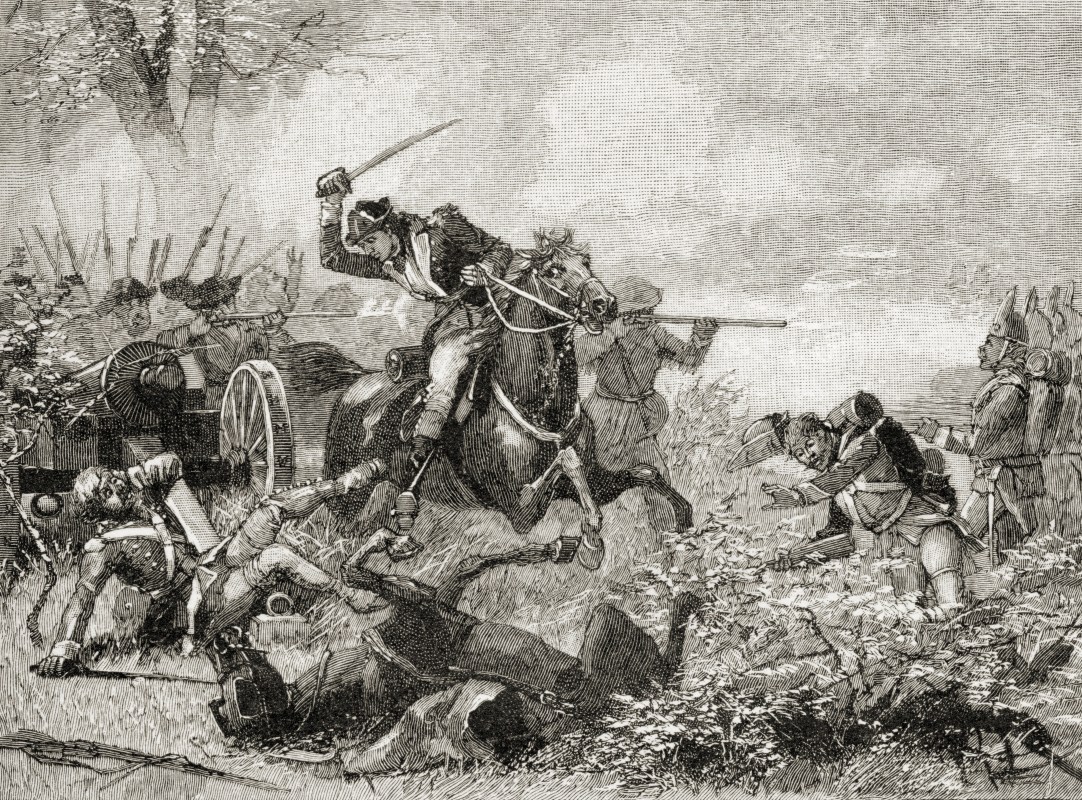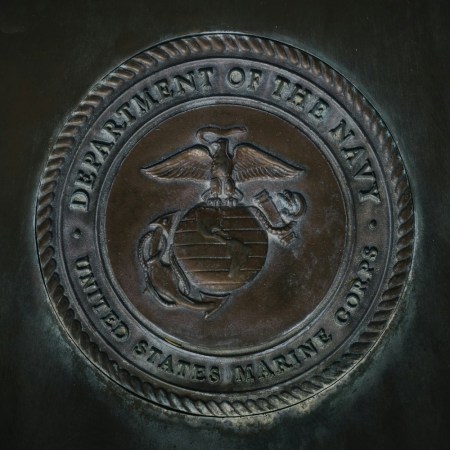The small boat pulled alongside the warship known as Vulture in the dead of night. A figure climbed down from the larger sloop, into the boat and quietly made his way up the Hudson River.
At a prearranged rendezvous point on the shoreline his contact arrived just after midnight. Through the early morning hours of Sept. 22, 1780 the two plotted. The first man was a British major named John Andre. The second was Benedict Arnold.
The secret face-to-face meeting, which was the culmination of a months-long conspiracy conducted through coded letters, dragged on into the dawn, when Arnold suggested the two move to a nearby house. It was there that Arnold gave Andre the defensive plans for the colonial military base at West Point — the act that would cement him for generations to come as one of America’s most notorious traitors.
Andre hid the plans in his stockings and prepared to slip back to British-controlled territory by horseback. In case of trouble, Arnold had given Andre a letter identifying him as Mr. John Anderson – not the most creative alias.
Before the two parted, Arnold is said to have expressed some amount of regret that he was turning on his young country, according to an early biography of Arnold. In return, Andre played the consummate spy recruiter, reminding Arnold how badly he had been mistreated by his patriotic colleagues and how little his unique talents were appreciated.
“But what cares Congress or your services, your wounds, and your losses?” Andre said.
“Your enemies in Congress do not thank you. I have even been told that in your last fight with [British Gen. John] Burgoyne, when you so crippled him as to compel his surrender, you fought as a volunteer, and without a command; and that while you were leading the troops [American General Horatio] Gates was in his tent, not even going upon the field at all; yet he received Burgoyne’s sword, a medal from Congress, all the honors of victory, and he, forsooth, is the hero of Saratoga, while you were tried by court-martial and disgraced.”
“Yes,” Arnold is said to have replied, “all this and more, is true; and this, in part, has driven me to my present conduct…”
Arnold’s plan to hand over West Point to the British – part of a larger plot to ensure British victory in the war – was thwarted when Andre was caught by an American patrol. Andre was hanged as a spy in early October, but before that he gave a full confession, naming Arnold. Arnold managed to escape to the British side before he was caught.
Much has been written about what caused Arnold to turn against his revolutionary comrades, and looking through the lens of espionage, he makes for an almost irresistible mark.
Since the Cold War the CIA recruited agents by exploiting perceived weaknesses in their targets based on an acronym: MICE – Money, Ideology, Compromise and Ego. Arnold easily checks three out of four boxes.
When it comes to money, by the time Arnold was considering his plot, he was in dire financial straits. He had remarried after the death of his first wife, but only after he had to convince the woman’s father that he was wealthy enough for the marriage – in part by buying a mansion that Arnold could not afford and lived well beyond his means.
“Thumbing his nose at the pious patriots who ruled the city, he purchased an ornate carriage and entertained extravagantly at his new residence, the same grand house the British general William Howe had occupied,” Smithsonian Magazine wrote of Arnold. “He attended the theater, even though the Continental Congress had advised the states to ban such entertainments as ‘productive of idleness, dissipation and general depravity.’”
A longtime critic of Arnold once wrote, “Money is this man’s god, and to get enough of it, he would sacrifice his country.”
In a letter to Andre in July 1980, Arnold offered to do just that by turning over West Point for 20,000 pounds – approximately $4.5 million today. More modern spies have shown to work for much less, but at the time, the British accepted the hefty price tag.
By then Arnold also had apparently lost faith in the revolution, and that’s where ideology comes in.
In a recent criticism of the MICE rubric, CIA Historical Staff member Randy Burkett wrote that it’s the ideological spies that are the most worrisome to spy hunters, more than those who serve the highest bidder.
“Clearly an agent committed to an ideology can be a powerful weapon,” Burkett wrote. “For CIA recruiters, agents who serve for reasons of belief are the only agents that most officers can truly respect.”
In Arnold’s case, he claims to have considered the revolutionary cause lost and believed that a swift British victory to be the most humane outcome.
“If I could buy this peace with my own blood, if by giving the other leg I could obtain triumph over my enemies and peace for my country; nay, were it not for my wife… were it not for her and the boys, my life might freely go,” he is said to have told Andre at their fateful meeting.
Whether Arnold was truly trying to save lives or just give himself moral cover for his actions is unknown. Arnold biographer Isaac Newton Arnold – no immediate relation – wrote that he “heard from a descendant of Arnold the existence of a tradition that he often said, and repeated over and over again, to his dying day. ‘I believed our cause was hopeless; I thought we never could succeed, and I did it to save the shedding of blood.’”
The one MICE concept that most likely doesn’t apply to Arnold is compromise, in which a target is blackmailed into spying. By all accounts Arnold was a willing and eager traitor.
But the last one on the list, ego, is perhaps the most consequential. Historical accounts are littered with the ways in which Arnold felt he had been wronged – from being repeatedly passed over for promotions, to the failure of others to praise him sufficiently for his early revolutionary battlefield victories.
“As part of this dynamic, one often finds a desire for revenge or retaliation as a motivator,” Hackett wrote of ego-driven recruits. “Examples include the disgruntled professional diplomat; the passed-over military officer who would not ‘play politics’; the intelligence officer sidelined for a drinking problem; or the law enforcement official forced to moonlight as a security guard to make ends meet. Under the MICE framework, these are all agents waiting to be recruited. They only need to have egos stroked and to be given the chance to harm a system that has wronged them.”
That’s precisely what Andre was doing during his meeting with Arnold, reminding the aging military officer how the system had wronged him and how much more appreciated he would be by the British.
As he made his escape on a British ship, Arnold wrote a letter to George Washington asking that his wife be spared any wrongdoing but adding that he had “no favor to ask for myself. I have too often experienced the ingratitude of my country to attempt it…”
But there was a twist ending for Arnold, who didn’t find much more appreciation for his greatness on the British side than that of the colonials. He briefly commanded British forces in America before returning to England.
In the end, he was forced to repeatedly ask the British government for the money he believed he was owed and finally died in “relative obscurity.” Far from ensuring British victory in the Revolutionary War, Arnold may have contributed more to its loss.
“Arnold’s perfidy could have demoralized an already weakened cause. Ultimately, it had the opposite effect on the Patriots and their supporters,” a West Point history says. “His infamy grew in proportion to his reputation as a great combat hero. Arnold didn’t merely change sides, but strove to sell his country for profit, and so he became universally loathed by a nation ready to use their hatred of his conduct to bring new hope to the cause of liberation.”
The Charge will help you move better, think clearer and stay in the game longer. Subscribe to our wellness newsletter today.

























